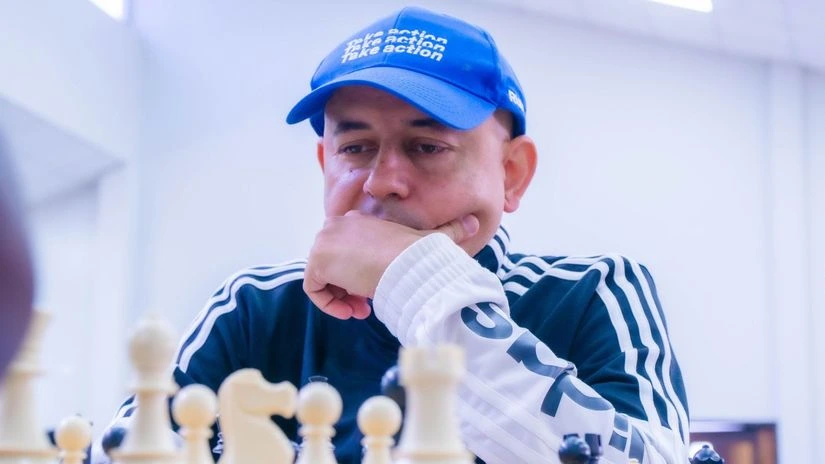There’s something truly electric about witnessing an entire nation’s sporting community gathering momentum—especially when it concerns a discipline like chess, where battles are quiet but the stakes are thunderous. The past week has seen Kenyan chess enjoy a series of uplifting triumphs and moments of hope, with seasoned veterans breaking long-standing barriers and young aspirants preparing to carry the flame into continental contention.
Mehul Gohil’s triumphant return at the Kiambu Open Chess Championships
For followers of chess in East Africa, the Kiambu Open Chess Championships have often served as a litmus test for regional prowess. This year’s edition, however, delivered more than just tense endgames—it marked a turning point. Former Kenyan national champion Mehul Gohil emerged from struggles and recent podium droughts to clinch a memorable victory, halting South Sudan’s remarkable streak in open competitions.
Gohil’s road to first place was anything but straightforward. Heading into the final round against Peter Manyang of South Sudan—a player Gohil himself described as “careful, super accurate, and aggressive when needed”—the pressure was immense. Gohil studied his opponent’s games over lunch, rating him as dangerous as any 2200-level contender. The climactic battle saw nerve clashes, high calculation, and a critical error from Manyang. Gohil capitalized when—under the relentless manoeuvre of his knight—Manyang faltered, gifting him the bishop pair. With a powerful pawn center, Gohil’s win became inevitable and the tension of months of hard work—on both chess acumen and psychological grit—finally snapped into celebration.
“Believe me, it has not been easy. Much work, chess and psychological improvements had to be done. Point is, never say die,” Gohil reflected afterward, holding the Ksh40,000 winner’s prize. Breaking South Sudan’s dominance, he became the first Kenyan to win an open chess event this year—a moment of both personal redemption and collective pride for Kenyan chess enthusiasts.
Strong showings and emerging stars
Behind Gohil, the podium told the story of competitive balance in the region. Wech Adol of South Sudan finished second with 5.5 points, and Peter Manyang settled for third on five points. Kenya’s own Victor Ngani, another former national champion, shared the points tally with Manyang and Samuel Gong of South Sudan, demonstrating a healthy mix of experience and ambition across the leaderboard.
The ladies’ section had its own surprises. Julie Mutisya clinched first with five points after a decisive win over Nicole Albright in the final round. Yet the talking point was Bernice Wambui—a former national youth champion—who stunned the field by claiming second, carving her own story into the event’s tapestry.
KCB’s continued dominance on the chess stage
On the corporate front, eight-time Kenya Chess Premier League champions KCB extended their authority by winning the top corporate team trophy at the Kiambu Open. With the league season underway, their focus now pivots to an imminent clash with Victoria Chess Club. Team coach Magana and Woman Fide Master Joyce Nyaruai have lauded the squad’s unwavering commitment and hard work—even as teenage prodigy Robert Macligeyo competes in Cairo for the Africa Individual Chess Championship, a testament to the depth of Kenya’s current talent pool.
The next generation: Kenyan juniors ready for Africa Schools Championship
As the headlines swirled with news of seasoned champions, another story—one both thrilling and foundational—has been unfolding quietly in Kenyan schools and camps. Thirty-seven young, ambitious chess players are readying for the Africa Schools Individual Chess Championship (ASICC), set to take place in Mombasa from May 22 to 29. With the host nation granted unlimited entries by the African Chess Confederation, Kenya’s representation will be strong, though only podium finishers from the nationals at Mang’u High School received full federation sponsorship.
The journey to this stage has been rigorous. During April holidays, the selected contingent undertook a two-week residential boot camp on the shores of Diani Beach in Kwale, guided by Zambian International Master Andrew Kayonde. Upon returning to their academic routines, the players have been honing their strategies through online sessions with Russian Grandmaster Mikhail Ivanov and training locally under the watchful eyes of Candidate Master Bernard Magana and coach Moses Andiwoh.
“We have confidence in our team to perform well. Right now we are preparing them psychologically and mentally. I don’t think we can fail to get four gold medals out of the 12 that will be up for grabs,” Andiwoh expressed, highlighting the blend of hope and quiet determination running through the camp.
| CASINO | BONUS | INFO | RATING | |
|---|---|---|---|---|
|
bonus
Welcome Bonus up to 18,000KES
See 17 Bonuses
|
info
Curacao OGL/2024/225/0601 Lots of exciting bonus features |
|||
|
bonus
Get 20% bonus on your first deposit, up to KES 10,000!
See 4 Bonuses
|
info
BK 0000725 24/7 customer support, M-Pesa payment option, mobile- and user-friendly website |
|||
|
bonus
Claim 1 free spin for signing up, win up to KSH 1,000!
See 3 Bonuses
|
info
PG 0000422 Games from top providers, rewarding welcome bonus & VIP program |
|||
|
bonus
Refer a friend and claim KSH 250
See 4 Bonuses
|
info
BK 0000739 PG 0000468 BCLB license, registration bonus, variety of casino games |
More than medals: what’s at stake in Mombasa
The significance of ASICC transcends medals. Competitors in six age brackets—Under-7, U9, U11, U13, U15, and U17—across both open and girls’ sections vie not just for trophies but also international chess titles and coveted qualification spots for the 2026 World Schools Championship. Only the winner in each age group earns the right to represent Africa globally, turning each match into a moment of immense personal and national consequence.
Chess Kenya president Bernard Wanjala underscored the broader impact: “It exposes our players, gives them the opportunity to increase their ratings and earn titles.” The ability to compete on home soil, against nearly 1,000 players from powerhouses like South Africa, Uganda, Namibia, Zambia, and Zimbabwe, affords Kenyan juniors—both the full-sponsored and self-funded—a once-in-a-lifetime spotlight and growth opportunity.
Bridging the generations and forging a chess future
The current wave of success at the Kiambu Open and preparations for ASICC signal more than isolated achievements—they paint a portrait of a chess culture in transition. Where seasoned champions like Mehul Gohil inspire by overcoming adversity, juniors carry the promise of continuity and fresh ambition. The cycle of improvement, mentorship, and competition strengthens the foundation for future international endeavors.
As chess boards are set in Mombasa, and young minds prepare for battles that will forge their identities, the Kenyan chess family stands united in fresh optimism. Whether in the bustling halls of a school championship or in the silent concentration of a top-tier open event, every move reflects a deep-seated resolve—a spirit that, as Gohil put it, refuses to “say die.”
Kenyan chess, driven by the convergence of storied champions and inspired youth, is entering a new era. The next chapter—written with grit, teamwork, and dreams—has just begun.










